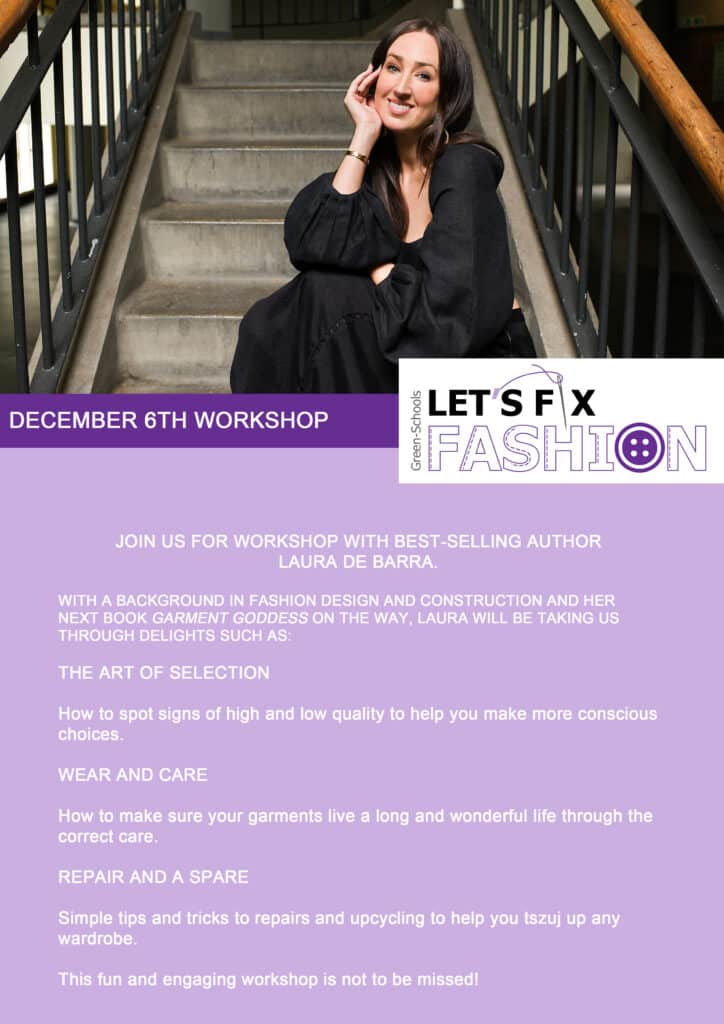
‘Fast fashion’ is the term used to describe the mass production of cheap, poor-quality clothing. These cheaply made, trendy pieces have resulted in overwhelming amounts of consumption and waste. All the elements of fast fashion: trend replication, rapid production, low quality and competitive pricing add up to having a detrimental impact on the planet and the people involved in garment production. Many of today’s top fast fashion brands use toxic chemicals, dangerous dyes, and synthetic fabrics that seep into our water supplies. Each year 100,000 tonnes of clothing are estimated to be thrown out in Ireland (Community Reuse Network Ireland). These garments—full of plastics fibres, lead, pesticides, and countless other chemicals—rarely break down. Instead, they sit in landfills, releasing toxins into the air. Fast fashion’s carbon footprint is enormous, giving industries like air travel and oil a run for their money.
The Green-Schools Let’s Fix Fashion Project is open to students in schools that are actively working on the Green-Schools Global Citizenship themes or Litter and Waste theme. The project is currently accepting applications for this school year and we would love to hear from you!
No, this programme is open to anyone who is interested in finding out about the negative impacts of the fashion industry on our planet, and what we can do to slow down fashion: create less waste, use more sustainable materials, improve working conditions etc. We welcome those who are passionate about creating change!
Each year the campaign is launched with a documentary screening within the school and live panel discussion during Climate Action week. Students focus on one aspect of the problem and create a communication project around their message. Some of our past screenings include: A True Cost, A Textile Mountain and this year’s Fashion Reimagined

A circular economy aims to maintain the value of products, materials and resources for as long as possible by returning them into the product cycle at the end of their use, while minimising the generation of waste. It designs out waste restoring and regenerating nature extending the lifespan of textiles. The circular economy tackles climate change and biodiversity loss together while addressing social needs.
We encourage all schools involved in the programme to run their own clothes sharing, or swap shop, event.
Schools that actively participate in the project throughout the year will be entered into a draw to take part in a live end of year catwalk event where students will be given vouchers to purchase and put together outfits from second hand clothing stores. Participating schools will be awarded a certificate of completion.
Green-Schools, An Taisce Environmental Education Unit. Registered Charity Number: CHY 4741 / CRA No: 20006358 / Company No: 12469

